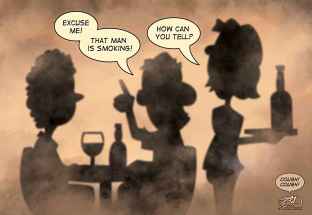Anti-rehab mindset built on misinformation
Read this article for free:
or
Already have an account? Log in here »
To continue reading, please subscribe:
Monthly Digital Subscription
$0 for the first 4 weeks*
- Enjoy unlimited reading on winnipegfreepress.com
- Read the E-Edition, our digital replica newspaper
- Access News Break, our award-winning app
- Play interactive puzzles
*No charge for 4 weeks then price increases to the regular rate of $19.00 plus GST every four weeks. Offer available to new and qualified returning subscribers only. Cancel any time.
Monthly Digital Subscription
$4.75/week*
- Enjoy unlimited reading on winnipegfreepress.com
- Read the E-Edition, our digital replica newspaper
- Access News Break, our award-winning app
- Play interactive puzzles
*Billed as $19 plus GST every four weeks. Cancel any time.
To continue reading, please subscribe:
Add Free Press access to your Brandon Sun subscription for only an additional
$1 for the first 4 weeks*
*Your next subscription payment will increase by $1.00 and you will be charged $16.99 plus GST for four weeks. After four weeks, your payment will increase to $23.99 plus GST every four weeks.
Read unlimited articles for free today:
or
Already have an account? Log in here »
Hey there, time traveller!
This article was published 17/08/2018 (2674 days ago), so information in it may no longer be current.
When tempers flare, true colours are often revealed.
As two opposing groups met on Tuesday night at a meeting intended to solicit public feedback on the proposed Bruce Oake Recovery Centre, the discussion quickly grew heated.
Family members of those who have succumbed to drug addiction argued that the non-profit rehab facility could have saved the lives of their loved ones, and would be a vital component in battling what is fast becoming a public-health crisis in this province.
The contingent opposing the 50-bed centre voiced complaints about what they claim is the city’s mishandling of the land transfer by which the property — the site of the shuttered Vimy Arena in the Crestview area — was acquired.
There’s no doubt some in the “anti” camp are genuinely concerned about what they perceive as the city’s disregard for promised park and recreation space in the area.
But as emotions got higher, some of the loudest voices on the con side weren’t talking about youth sports or green space. They were laying blame and, knowingly or not, perpetuating the falsehoods about addiction that lie at the heart of why people fear rehab centres in their neighbourhoods.“It’s hypocritical to use the “not in my backyard” argument against a drug-treatment centre– our backyards are exactly where addiction exists, in our homes and in our neighbours’ homes — but it’s also tied into a faulty notion of what people struggling with this grave health issue look like and where they live.”
It’s hypocritical to use the “not in my backyard” argument against a drug-treatment centre — our backyards are exactly where addiction exists, in our homes and in our neighbours’ homes — but it’s also tied into a faulty notion of what people struggling with this grave health issue look like and where they live.
Health-care professionals in Manitoba have been telling us for years that addicts are not restricted to the downtown core or any other neighbourhood. Fentanyl and methamphetamine have claimed victims from Tuxedo to Transcona; the latter drug is tied to rising crime rates all over the city. It’s naive to imagine that the presence of 50 supervised patients actively trying to get well could somehow be more dangerous than desperate people who feel they have nowhere to turn.
Other damaging, incorrect ideas — that addicts are morally inferior and lack willpower, that people from good families with supportive parents in sleepy suburbs don’t fall prey to drugs — detract from the basic facts: those suffering from addiction should be treated the same way as anyone suffering from any illness in this country, with the same degree of compassion.
We blame people who are addicted to drugs in a way we would never dream of blaming people who develop lung cancer after a lifetime of smoking. We rise up against proposed drug rehab centres in a way we don’t against bars, where people are free to indulge in an addiction that is statistically far more harmful, and that ruins even more lives.
At Tuesday’s meeting, supporters of the centre argued that addicts deserve treatment, not judgment; empathy, not ostracism. Hearing about their fruitless struggles to help family members who were desperate for a cure made those who argued against them — claiming they didn’t try hard enough, didn’t care enough — sound not just clueless, but callous.
Is rehab always successful?
No. Neither is chemotherapy, but that doesn’t mean we don’t try it.
As the crisis worsens, the scourge of addiction will touch more of us, but it would be a hollow victory indeed to hear those newly touched by tragedy — in Charleswood, in River Heights, in St. Vital — finally cry out for more facilities in their backyards.










